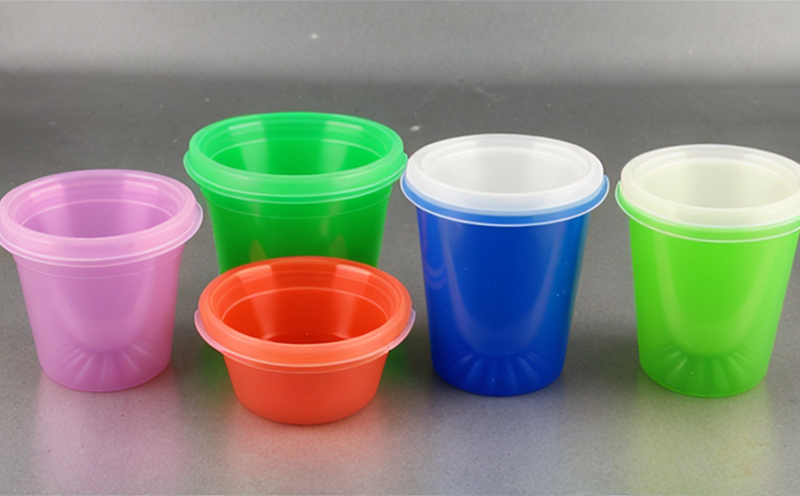DIN 75220 Aging Testing of Disposable Plastics for Automotive Use
The DIN 75220 standard is specifically designed to evaluate the aging behavior and durability of disposable plastics intended for automotive applications. This testing protocol aims to ensure that materials used in single-use components like fuel lines, air filters, or other parts under extreme environmental conditions maintain their integrity and performance over time.
Aging tests are critical because they simulate real-world exposure scenarios such as temperature fluctuations, sunlight, humidity, and mechanical stress. These factors can significantly impact the lifespan of disposable plastics used in automotive systems. By adhering to DIN 75220 standards, manufacturers can ensure that their products not only meet current regulatory requirements but also anticipate future challenges related to material degradation.
The testing process typically involves exposing samples to controlled environmental conditions that mimic anticipated end-use environments. Specimens are placed inside an accelerated aging chamber where temperature and relative humidity levels are precisely regulated according to specified parameters outlined in the standard. Additionally, some tests may include UV radiation exposure to simulate sunlight effects on materials.
Once exposed, specimens undergo thorough evaluation using various analytical techniques including optical microscopy (OM), scanning electron microscopy (SEM), Fourier transform infrared spectroscopy (FTIR), and differential scanning calorimetry (DSC). These methods help assess changes in morphology, chemical composition, mechanical properties, and thermal stability of the plastic samples after aging.
Results from these assessments provide valuable insights into how well a particular material or formulation withstands typical automotive usage conditions. This information can be used by R&D teams to improve formulations, select appropriate raw materials, optimize manufacturing processes, and ultimately enhance product quality and reliability.
Compliance with DIN 75220 is essential for companies operating in the automotive industry who wish to ensure their products meet stringent quality standards set forth by international organizations such as VDA (Verband Deutscher Automobilindustriefirmen).
Applied Standards
| Standard | Description |
|---|---|
| DIN 75220 | Aging testing for disposable plastics used in automotive applications. |
| ASTM D638 | Tensile properties of plastics. |
| ISO 14642 | Durability and performance characteristics under specified conditions. |
| EN ISO 17502 | Thermal aging resistance of plastics used in automotive systems. |
Benefits
- Ensures compliance with international standards.
- Promotes consistent product quality across different production batches.
- Reduces the risk of premature failure due to environmental factors.
- Aids in selecting suitable raw materials and optimizing manufacturing processes.
- Simplifies regulatory approval processes by demonstrating adherence to established norms.
Industry Applications
- Automotive component manufacturers who produce disposable plastics for fuel lines, air filters, or other parts.
- R&D departments focused on developing new formulations that meet stringent durability requirements.
- Quality assurance teams responsible for ensuring product consistency and reliability.
- Procurement personnel looking to source materials from suppliers who adhere to specific testing protocols.





